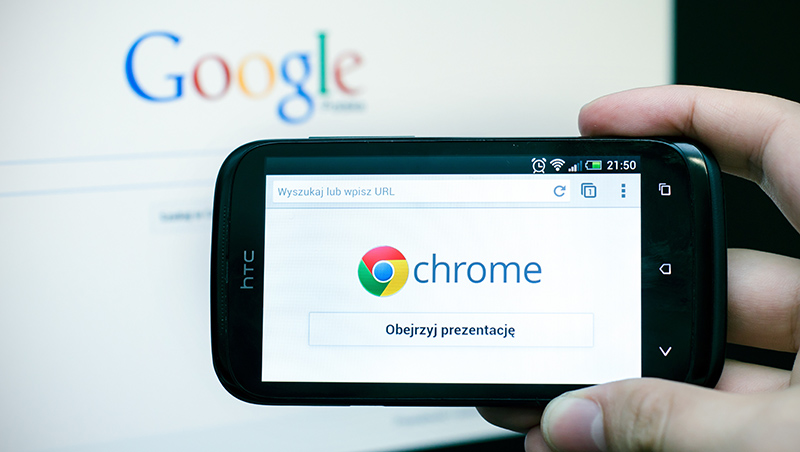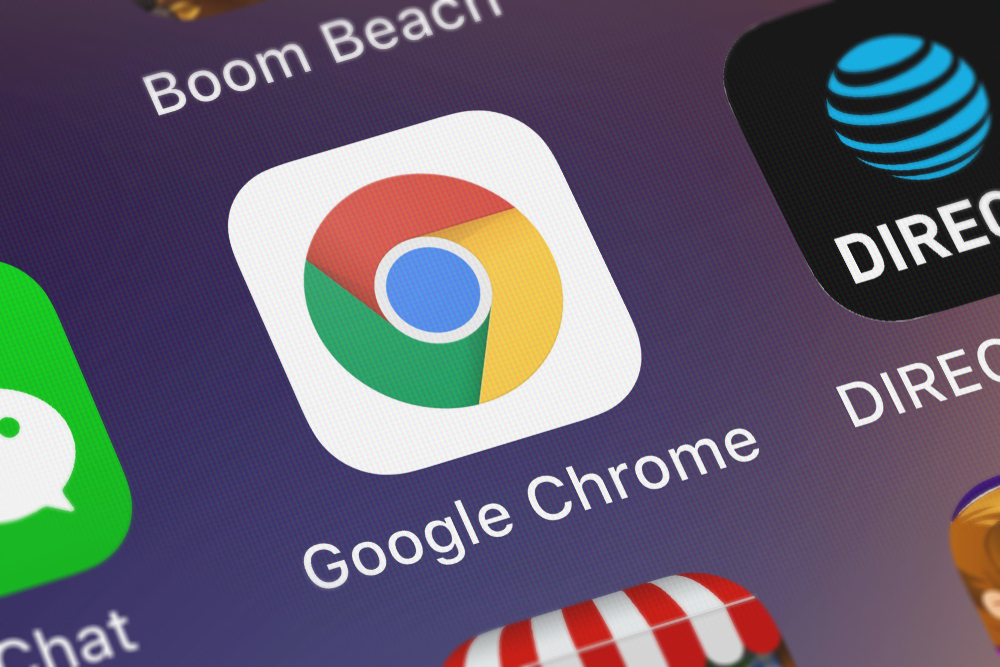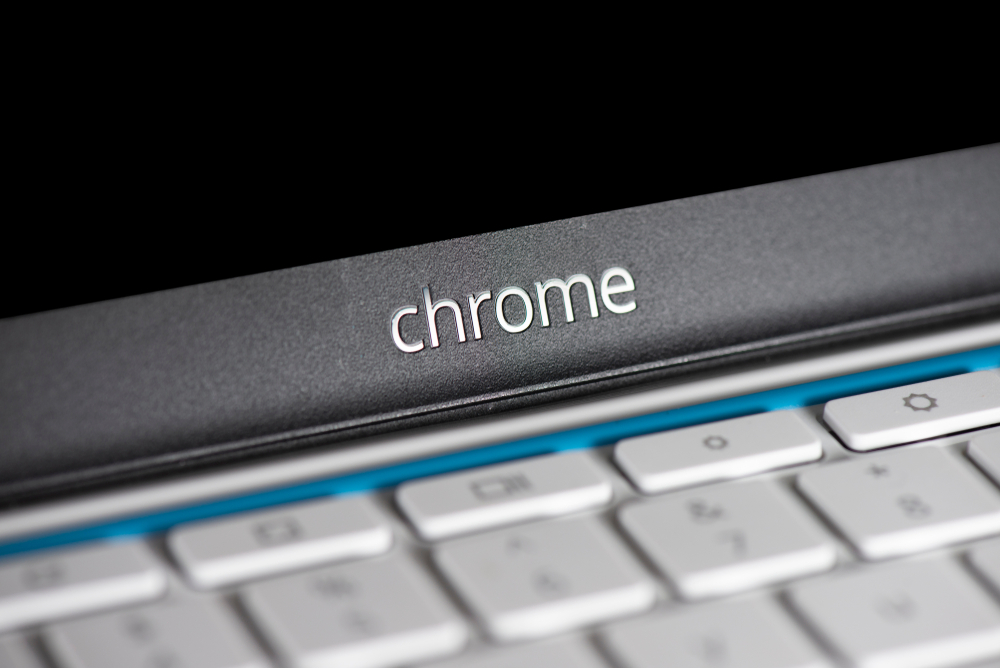Google targets ads with blocker built into Chrome
Rumoured Chrome ad blocker will arrive in 2018, with Google offering tools to help publishers fall into line


Google has confirmed rumours that it's rolling out its own ad blocker built into the Chrome browser, giving publishers until next year to clean up their sites to avoid problems.
Over the past few years, ad blockers have risen in use, though that's leveled out to 22% of web users this year. Reports suggested Google was planning to offer a blocker or ad filter in Chrome by default, similar to Opera, and that now looks set to happen next year. Chrome already blocks pop-ups, which are frequently used for advertising.
Sridhar Ramaswamy, senior vice president of ads and commerce at Google, said in a blog post that most online content is funded by advertising. "But the reality is, it's far too common that people encounter annoying, intrusive ads on the web - like the kind that blare music unexpectedly, or force you to wait ten seconds before you can see the content on the page," he said. "These frustrating experiences can lead some people to block all ads - taking a big toll on the content creators, journalists, web developers and videographers who depend on ads to fund their content creation."
To help, Chrome will start blocking ads that "are not compliant with the Better Ads Standards starting in early 2018," Ramaswamy said, stressing that includes ads that are "owned or served by Google". That's a message Google will be keen for people to hear, as it's one of the largest online advertisers. EU Commissioner Margrethe Vestager tweeted after the move was rumoured earlier this year that she'd be following the plans and its effects "closely".
Conveniently, most of Google's ads already comply with that standard, The Guardian reported, in particular its text-based search advertising. The Coalition for Better Ads standard calls for sites on desktop to stop using pop-up ads (already blocked by Chrome), auto-playing video ads with sound, prestitial ads with a countdown, and large "sticky" ads that hover over content. On mobile, it also includes animated ads, ad density above 30%, full-screen scroll-over ads, and large sticky ads, among others.
For those who don't already meet the standard, Google is also offering a tool to help publishers concerned the ads on their sites may fall foul of the new blocking system, letting them get an "Ad Experience Report" to see how the Better Ads Standards would apply to their own advertising. "It provides screenshots and videos of annoying ad experiences we've identified to make it easy to find and fix the issues," said Ramaswamy.
Google is working on another tool that could let publishers offer to let visitors continue using their ad blocker if they pay up. "With Funding Choices, now in beta, publishers can show a customised message to visitors using an ad blocker, inviting them to either enable ads on their site, or pay for a pass that removes all ads on that site through the new Google Contributor," Ramaswamy said.
Get the ITPro daily newsletter
Sign up today and you will receive a free copy of our Future Focus 2025 report - the leading guidance on AI, cybersecurity and other IT challenges as per 700+ senior executives
Seismic impact of ad blockers
The UK arm of the Internet Advertising Bureau welcomed the move by Google. "We at the IAB UK warmly welcome any industry change that promotes better digital advertising with a view to making a better consumer experience," a spokesperson said. "Google's move quickly puts weight behind the stance set by the Coalition for Better Ads following the release of their better ads standards."
Ben Williams, operations manager at AdBlock Plus, said the move showed the "seismic impact that consumer tools like ad blockers have had on the billion dollar ad industry."
He noted AdBlock Plus works across browsers and mobile, letting "users filter as much or as little as they like".
"We also see the need to give users alternative options to directly fund websites and content creators without relying on advertising, which is why we work on Flattr, a zero-click payment system that works across all browsers on any website," he added.
Freelance journalist Nicole Kobie first started writing for ITPro in 2007, with bylines in New Scientist, Wired, PC Pro and many more.
Nicole the author of a book about the history of technology, The Long History of the Future.
-
 Should AI PCs be part of your next hardware refresh?
Should AI PCs be part of your next hardware refresh?AI PCs are fast becoming a business staple and a surefire way to future-proof your business
By Bobby Hellard
-
 Westcon-Comstor and Vectra AI launch brace of new channel initiatives
Westcon-Comstor and Vectra AI launch brace of new channel initiativesNews Westcon-Comstor and Vectra AI have announced the launch of two new channel growth initiatives focused on the managed security service provider (MSSP) space and AWS Marketplace.
By Daniel Todd
-
 Spanish spyware outfit uncovered, develops exploits for Windows, Chrome, and Firefox
Spanish spyware outfit uncovered, develops exploits for Windows, Chrome, and FirefoxNews Google was only able to discover the company after an anonymous submission was made to its Chrome bug reporting programme
By Zach Marzouk
-
 Google adds new security vendor plugins for Chrome, improved Chrome OS policy controls for IT admins
Google adds new security vendor plugins for Chrome, improved Chrome OS policy controls for IT adminsNews New integrations across various security pillars aim to improve Chrome OS and Chrome browser security for enterprise customers
By Connor Jones
-
 Google patches second Chrome browser zero-day of 2022
Google patches second Chrome browser zero-day of 2022News Google acted quickly to secure against the type confusion vulnerability that was under active exploitation
By Connor Jones
-

 Acer Chromebook Spin 513 review: Cheap and mostly cheerful
Acer Chromebook Spin 513 review: Cheap and mostly cheerfulReviews An affordable Chromebook convertible with good looks but mediocre performance
By Mike Jennings
-
 Google says Chrome is now faster than Safari on Apple Silicon
Google says Chrome is now faster than Safari on Apple SiliconNews According to Apple's own benchmarks, Chrome 99 scored the highest out of any browser ever tested
By Connor Jones
-
 Google Chrome update fixes zero-day under active exploitation
Google Chrome update fixes zero-day under active exploitationNews Google releases a fresh wave of patches for severe vulnerabilities that could facilitate code execution and system takeover via Google Chrome
By Connor Jones
-

 Asus Chromebook CX9 (CX9400CE) review: The most stylish Chromebook on the market
Asus Chromebook CX9 (CX9400CE) review: The most stylish Chromebook on the marketReviews A sleek, expensive Chromebook that tries to bring professional style to Google’s OS
By Mike Jennings
-
 Chromebook shipments plunge due to 'shift in demand'
Chromebook shipments plunge due to 'shift in demand'News Sales of Chrome OS devices fell 29.8% in the third quarter of 2021 to 6.5 million units, according to IDC
By Danny Bradbury